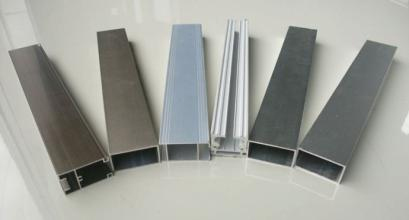Getting The Alcast Company To Work
Getting The Alcast Company To Work
Blog Article
Alcast Company Can Be Fun For Anyone
Table of ContentsThe Best Guide To Alcast CompanyAlcast Company for Dummies4 Simple Techniques For Alcast CompanyThe smart Trick of Alcast Company That Nobody is Talking AboutSome Known Questions About Alcast Company.Indicators on Alcast Company You Should Know
Chemical Comparison of Cast Aluminum Alloys Silicon advertises castability by reducing the alloy's melting temperature level and enhancing fluidity during casting. Furthermore, silicon contributes to the alloy's stamina and wear resistance, making it beneficial in applications where resilience is vital, such as automobile parts and engine parts.It likewise improves the machinability of the alloy, making it easier to process right into completed products. In this way, iron contributes to the general workability of aluminum alloys. Copper raises electrical conductivity, making it useful in electrical applications. It likewise boosts deterioration resistance and includes to the alloy's total strength.
Manganese contributes to the stamina of light weight aluminum alloys and enhances workability. Magnesium is a lightweight component that offers stamina and impact resistance to light weight aluminum alloys.
Fascination About Alcast Company
It enables the production of light-weight parts with exceptional mechanical homes. Zinc enhances the castability of light weight aluminum alloys and assists control the solidification procedure during casting. It enhances the alloy's strength and firmness. It is frequently located in applications where detailed shapes and fine information are required, such as attractive spreadings and certain automotive parts.

The main thermal conductivity, tensile strength, yield strength, and prolongation differ. Select appropriate basic materials according to the performance of the target product created. Amongst the above alloys, A356 has the greatest thermal conductivity, and A380 and ADC12 have the lowest. The tensile limitation is the contrary. A360 has the most effective yield stamina and the highest possible prolongation rate.
The Alcast Company Statements

In accuracy spreading, 6063 is fit for applications where complex geometries and high-grade surface finishes are critical. Instances consist of telecommunication enclosures, where the alloy's premium formability enables for smooth and aesthetically pleasing designs while maintaining structural stability. In the Illumination Solutions market, precision-cast 6063 components develop stylish and efficient illumination components that call for intricate shapes and good thermal performance.
The A360 shows remarkable elongation, making it optimal for facility and thin-walled parts. In precision spreading applications, A360 is well-suited for markets such as Customer Electronic Devices, Telecommunication, and Power Tools.
A Biased View of Alcast Company
Its unique homes make A360 an important selection for accuracy casting in these markets, boosting product toughness and high quality. Aluminum alloy 380, or A380, is an extensively used casting alloy with several distinctive features. It provides excellent castability, making it an excellent choice for accuracy casting. A380 displays good fluidity when molten, making sure elaborate and comprehensive molds are accurately replicated.
In precision casting, light weight aluminum 413 radiates in the Customer Electronics and Power Tools industries. It's commonly used to craft detailed elements like smart device housings, electronic camera bodies, and power tool cases. Its accuracy is amazing, with tight tolerances as much as 0.01 mm, making certain flawless product assembly. This alloy's premium corrosion resistance makes it an exceptional option for outdoor applications, making sure lasting, resilient items in the pointed out industries.
Alcast Company Things To Know Before You Get This
As soon as you have made here are the findings a decision that the light weight aluminum die casting process appropriates for your task, a critical next action is deciding on the most appropriate alloy. The light weight aluminum alloy you pick will significantly affect both the spreading process and the buildings of the end product. Because of this, you should make your choice very carefully and take an educated approach.
Determining the most suitable aluminum alloy for your application will mean evaluating a large selection of qualities. The first group addresses alloy features that impact the production process.
7 Easy Facts About Alcast Company Shown
The alloy you choose for die casting directly affects several facets of the spreading process, like exactly how simple the alloy is to work with and if it is susceptible to casting flaws. Hot splitting, likewise called solidification breaking, is a common die casting defect for aluminum alloys that can result in inner or surface-level rips or splits.
Particular light weight aluminum alloys are a lot more prone to warm splitting than others, and your choice ought to consider this. Another usual issue located in the die spreading of aluminum is pass away soldering, which is when the actors stays with the die walls and makes ejection difficult. It can damage both the cast and the die, so you should search for alloys with high anti-soldering properties.
Rust resistance, which is already a notable feature of aluminum, can differ significantly from alloy to alloy and is a vital characteristic to take into consideration depending upon the ecological problems your product will certainly be revealed to (aluminum foundry). Use resistance is an additional building typically looked for in aluminum products and can set apart some alloys
Report this page